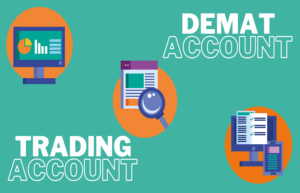Charges to Watch Out for While Opening a Demat Account

Opening a demat account is the first step toward investing in the stock market, but many beginners overlook the charges involved. While brokers and demat apps often advertise “zero account opening fees,” hidden costs can creep in later and eat into your returns. Understanding these charges before signing up ensures you can choose the right platform and avoid unpleasant surprises.
Here’s a detailed look at the main charges to watch out for when opening and maintaining a demat account.
Account Opening Charges
Some brokers and demat apps waive the account opening fee to attract new customers, but others may charge anywhere between ₹200 and ₹800. Even brokers offering “free” accounts sometimes bundle hidden costs into other services. Always ask for written confirmation if a platform advertises zero account opening fees.
Annual Maintenance Charges (AMC)
AMCs are recurring fees charged by brokers for maintaining your demat account. The amount typically ranges from ₹200 to ₹1,000 per year. Some brokers offer free AMCs for the first year but start charging from the second year onward. Be sure to ask how long any free period lasts and what the AMC will be afterward.
Brokerage Charges
While not directly part of opening a demat account, brokerage fees apply every time you buy or sell shares. Brokers may charge a flat fee per trade or a percentage of the transaction amount. Frequent traders should compare these rates carefully, as even small differences can add up over time.
Transaction Charges
These can range from ₹10 to ₹30 per transaction, depending on the broker and the depository (NSDL or CDSL). If you plan to make multiple trades, factor in these recurring costs.
Custodian Fees
Custodian charges are fees paid to the depository participant (DP) for holding your securities in electronic form. Although custodian fees are often included in other charges, some brokers or demat apps list them separately.
Pledge and Unpledge Charges
If you plan to pledge your securities to avail margin or loans, brokers charge fees for pledging and unpledging transactions. These charges can be ₹30 to ₹100 per instruction and are easily overlooked if you’re not aware of them upfront.
Physical Statement Charges
While most investors today use digital statements, requesting physical copies can cost between ₹25 and ₹100 per statement. Check whether your broker or demat app provides free e-statements to avoid unnecessary fees.
Off-Market Transfer Charges
Transferring shares between demat accounts outside the stock exchange mechanism (e.g., gifting shares or moving them to another DP) attracts off-market transfer charges. These fees vary widely across brokers and can impact you if you ever need to switch platforms.
Debit Transaction Charges
Whenever you sell shares, brokers deduct a debit transaction charge from your demat account. These charges are often overlooked because they are applied directly on trade settlements, but they can range from ₹10 to ₹30 per transaction.
GST and Other Taxes
All charges mentioned above attract GST at 18%. Remember to account for these taxes in your total cost calculations, as they can significantly increase what you pay over time.
Hidden Charges to Ask About
Some brokers and demat apps may levy charges for services like call & trade facilities, research reports, or advisory services. These fees are not always prominently displayed, so it’s wise to ask the broker to share a complete schedule of charges before opening your demat account.
How to Minimise Costs
- Compare multiple brokers and demat apps before choosing one, focusing on overall costs instead of just one-time fees.
- Opt for brokers offering lifetime free AMC if you’re a long-term investor.
- Choose digital statements to avoid extra fees for physical copies.
Conclusion
While opening a demat account online is fast and convenient, not knowing the full fee structure can lead to higher-than-expected costs. By understanding charges like AMCs, transaction fees, custodian costs, and more, you can make informed decisions and avoid unnecessary expenses. Always compare brokers and demat apps thoroughly—because a low-cost account today can lead to higher profits tomorrow.







